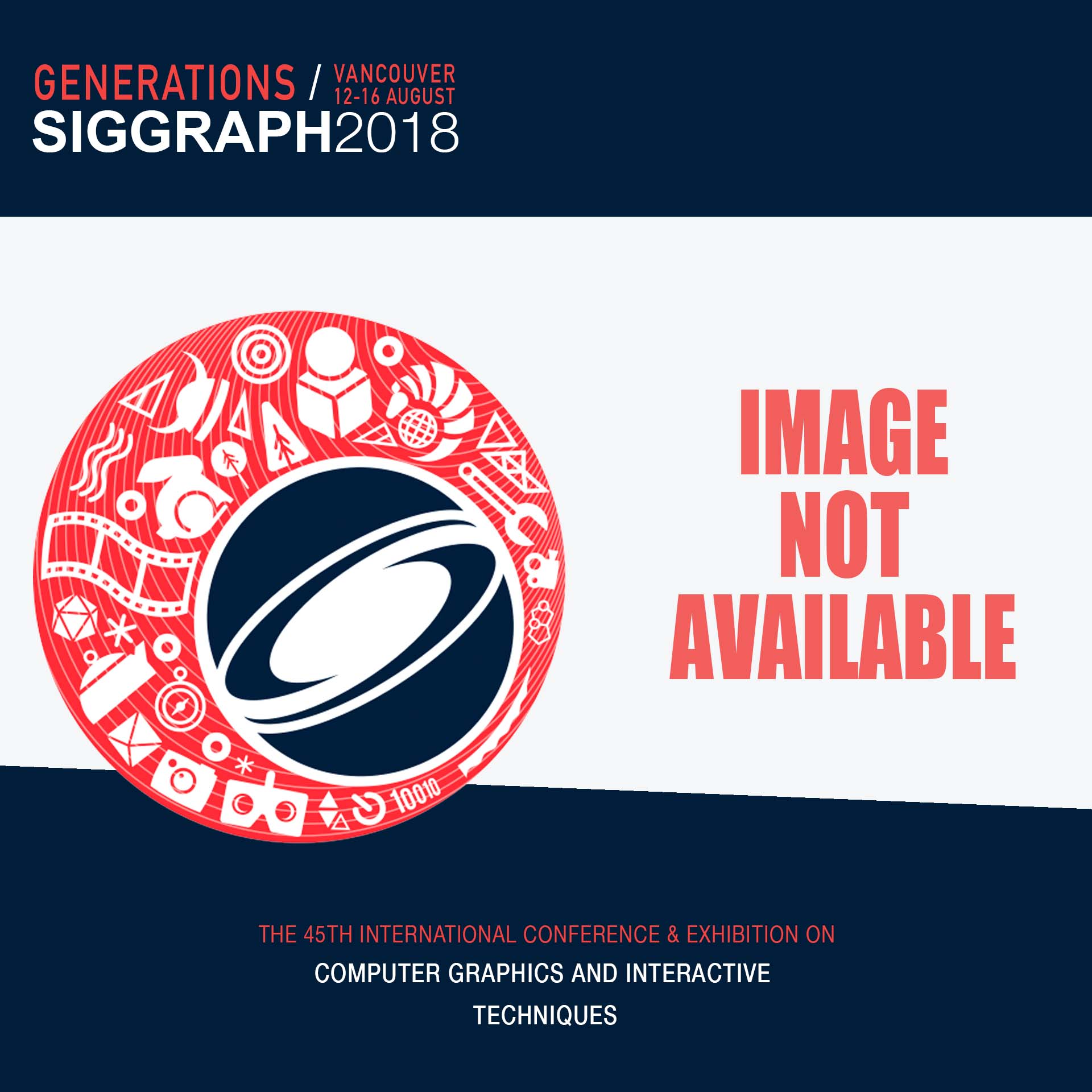“Locally Adaptive Rank-Constrained Optimal Tone Mapping” by Shu and Wu
Conference:
Type(s):
Title:
- Locally Adaptive Rank-Constrained Optimal Tone Mapping
Session/Category Title:
- Computational Photography
Presenter(s)/Author(s):
Moderator(s):
Abstract:
High dynamic range (HDR) tone mapping is formulated as an optimization problem of maximizing perceivable spatial details given the limited dynamic range of display devices. This objective can be attained, as supported by our results, by a novel image display methodology called locally adaptive rank-constrained optimal tone mapping (LARCOTM). The scientific basis for LARCOTM is that the maximum discrimination power of human vision system can only be achieved in a relatively small locality of an image. LARCOTM is fundamentally different from existing HDR tone mapping techniques in that the former can preserve pixel value order statistics within localities in which human foveal vision retains maximum sensitivity, while the latter cannot. As a result, images enhanced by LARCOTM are free of artifacts such as halos and double edges that plague other HDR methods.
References:
- Edward H. Adelson. 2000. Lightness perception and lightness illusions. In The New Cognitive Neurosciences (2nd ed.). MIT Press, 339–351.
- Sos Agaian, Blair Silver, and Karen Panetta. 2007. Transform coefficient histogram-based image enhancement algorithms using contrast entropy. IEEE Trans. Image Process. 16, 3 (2007), 741–758.?
- Mathieu Aubry, Sylvain Paris, Samuel W. Hasinoff, Jan Kautz, and Fr?do Durand. 2014. Fast local laplacian filters: Theory and applications. ACM Trans. Graph. (TOG) 33, 5 (2014), 167:1–167:14.?
- J. Ed Barnes. 1992. Characteristics and control of contrast in CT. Radiographics 12, 4 (1992), 825–837.
- T. Celik and T. Tjahjadi. 2011. Contextual and variational contrast enhancement. IEEE Trans. Image Process. 20, 12 (2011), 3431–3441.?
- Hadar Cohen-Duwek, Hedva Spitzer, Rony Weitzen, and Sara Apter. 2011. A biologically-based algorithm for companding computerized tomography (CT) images. Comput. Biol. Med. 41, 6 (2011), 367–379.?
- DDE 2016. Digital Detail Enhancement (DDE) Technical Note. Retrieved from http://www.flirmedia.com/MMC/CVS/Tech_Notes/TN_0003_EN.pdf.
- Zeev Farbman, Raanan Fattal, Dani Lischinski, and Richard Szeliski. 2008. Edge-preserving decompositions for multi-scale tone and detail manipulation. ACM Trans. Graph. 27, 3 (2008), 67:1–67:10.?
- Raanan Fattal. 2009. Edge-avoiding wavelets and their applications. ACM Trans. Graph. 28, 3 (2009), 1–10.?
- Raanan Fattal, Dani Lischinski, and Michael Werman. 2002. Gradient domain high dynamic range compression. ACM Trans. Graph. 21, 3 (2002), 249–256.?
- Ajo John, Walter Huda, Ernest M. Scalzetti, Kent M. Ogden, and Marsha L. Roskopf. 2004. Performance of a single lookup table (LUT) for displaying chest CT images. Acad. Radiol. 11, 6 (2004), 609–619.
- Y. T. Kim. 1997. Enhancement using brightness preserving bi-histogram equalization. IEEE Trans. Consum. Electron. 43, 1 (1997), 1–8.?
- Tom Kimpe and Tom Tuytschaever. 2007. Increasing the number of gray shades in medical display systems?How much is enough? J. Dig. Imag. 20, 4 (2007), 422–432.
- E. H. Land and J. J. McCann. 1971. Lightness and retinex theory. J. Optic. Soc. Amer. 61, 1 (1971), 1–11.
- G. W. Larson, H. Rushmeier, and C. Piatko. 1997. A visibility matching tone reproduction operator for high dynamic range scenes. IEEE Trans. Visual. Comput. Graph. 3, 4 (1997), 291–306.?
- Zhenhao Li and Xiaolin Wu. 2014. Contrast enhancement with chromaticity error bound. In Proceedings of the International Conference on Image Processing (ICIP?14). IEEE, 4507–4511.
- Rafa?Mantiuk, Scott Daly, and Louis Kerofsky. 2008. Display adaptive tone mapping. ACM Trans. Graph. 27, 3 (2008), 68:1–68:10.?
- Rafat Mantiuk, Kil Joong Kim, Allan G. Rempel, and Wolfgang Heidrich. 2011. HDR-VDP-2: A calibrated visual metric for visibility and quality predictions in all luminance conditions. In ACM Transactions on Graphics, vol. 30. ACM, 40.?
- Rafa?Mantiuk, Karol Myszkowski, and Hans-Peter Seidel. 2006. A perceptual framework for contrast processing of high dynamic range images. ACM Trans. Appl. Percept. 3, 3 (2006), 286–308.?
- A. V. Oppenheim, R. W. Schafer, and T. G. Stockham Jr.1968. Nonlinear filtering of multiplied and convolved signals. IEEE Trans. Audio Electroacoust. 16, 3 (1968), 437–466.
- Sylvain Paris, Samuel W. Hasinoff, and Jan Kautz. 2011. Local laplacian filters: Edge-aware image processing with a laplacian pyramid. ACM Trans. Graph. 30, 4 (2011), 68:1–68:12.?
- Ziaur Rahman and Glenn A. Woodell. 2004. Retinex processing for automatic image enhancement. J. Electron. Imag. 13 (2004), 100–110.
- Erik Reinhard, Michael Stark, Peter Shirley, and James Ferwerda. 2002. Photographic tone reproduction for digital images. ACM Trans. Graph. 21, 3 (2002), 267–276.?
- E. Reinhard, G. Ward, S. Pattanaik, and P. Debevec. 2005. High Dynamic Range Imaging: Acquisition, Display, and Image-Based Lighting. Morgan Kaufmann.?
- Xiao Shu and Xiaolin Wu. 2013. Image enhancement revisited: From first order to second order statistics. In Proceedings of the International Conference on Image Processing (ICIP?13). IEEE, 886–890.
- J. A. Stark. 2000. Adaptive image contrast enhancement using generalizations histogram equalization. IEEE Trans. Image Process. 9, 5 (2000), 889–896.?
- Martin ?ad?k, Michael Wimmer, Laszlo Neumann, and Alessandro Artusi. 2008. Evaluation of HDR tone mapping methods using essential perceptual attributes. Comput. Graph. 32, 3 (2008), 330–349.?
- Y. Wang, Q. Chen, and B. Zhang. 1999. Image enhancement based on equal area dualistic sub-image histogram equalization method. IEEE Trans. Consum. Electron. 45, 1 (1999), 68–75.?
- X. Wu. 2011. A linear programming approach for optimal contrast-tone mapping. IEEE Trans. Image Process. 20, 5 (2011), 1262–1272.?
- Hojatollah Yeganeh and Zhou Wang. 2013. Objective quality assessment of tone-mapped images. IEEE Trans. Image Process. 22, 2 (2013), 657–667.?






